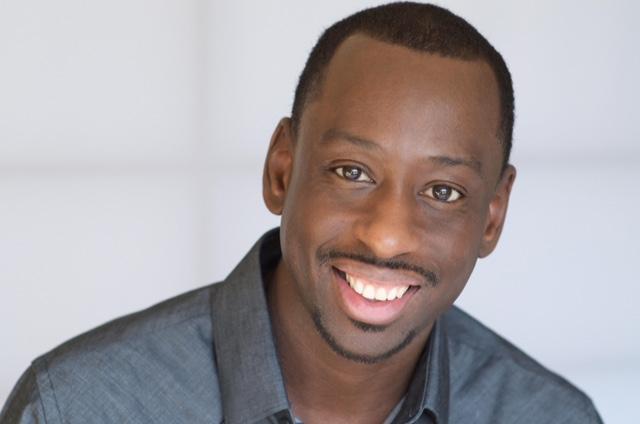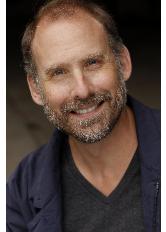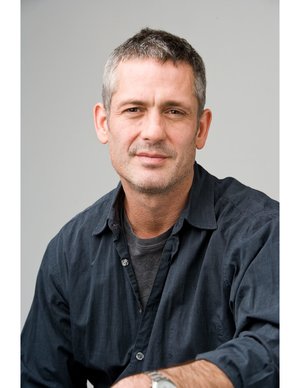
Fall classes in Tap Dancing, Playwrighting, Screenwriting and Acting for the Camera
WHEN: BEGIN 0N MONDAY, 10/21 AND END ON 12/2
WHERE: 80 HAUXHURST AVENUE, WEEHAWKEN, NJ
TUITION: ALL CLASSES ARE $180.00 FOR 6 WEEKS AND ARE EITHER MONDAY OR TUESDAYS FROM 7PM TO 9PM.
CLASS INFORMATION CAN BE FOUND AT WWW.HUDSONTHEATREWORKS.ORG UNDER EDUCATION
PLEASE EMAIL HUDSONTHEATREWORKS@GMAIL.COM TO REGISTER AND MORE INFO.
 TAP DANCING (TUESDAY) - Jeffry is an actor, singer and tap dancer, and has been performing for over 20 years. Jeffry has trained in the art of tap with Deborah Mitchell, Karen Calloway Williams, Omar Edwards, and many others. Some of his past credits include "Riffin & Tappin", "Dance Bojangles Dance", "42nd Street", "Shades Of Harlem", and recently New York City Center Encores “Don't Bother Me, I Can't Cope" directed and choreographed by Savion Glover. He also occasionally performs as Sammy Davis Jr in Tribute To The Rat Pack which performs all over the east coast. Jeffry also teaches tap in the tri-state area. Jeffry is also a member and a principle dancer of the New Jersey Tap Dance Ensemble under the direction of Deborah Mitchell.
TAP DANCING (TUESDAY) - Jeffry is an actor, singer and tap dancer, and has been performing for over 20 years. Jeffry has trained in the art of tap with Deborah Mitchell, Karen Calloway Williams, Omar Edwards, and many others. Some of his past credits include "Riffin & Tappin", "Dance Bojangles Dance", "42nd Street", "Shades Of Harlem", and recently New York City Center Encores “Don't Bother Me, I Can't Cope" directed and choreographed by Savion Glover. He also occasionally performs as Sammy Davis Jr in Tribute To The Rat Pack which performs all over the east coast. Jeffry also teaches tap in the tri-state area. Jeffry is also a member and a principle dancer of the New Jersey Tap Dance Ensemble under the direction of Deborah Mitchell.
 PLAYWRIGHTING (MONDAY) - Joanne Hoersch is a recipient of a 2012 grant from the NJ State Council on the Arts for her first play, Jackson is Gone, which was also selected for a roundtable reading at the Lark Theatre. Prior to becoming a playwright, she was a fiction writer. She received a Woolrich fellowship for fiction from Columbia University, was a semi-finalist in the Heekin Foundation’s national short story contest, and was a 1998 grantee from the NJ State Council on the Arts for her short story, “Josie Going Places.” Her play "Bunnies" will be presented by Hudson Theatre Works May, 2020.
PLAYWRIGHTING (MONDAY) - Joanne Hoersch is a recipient of a 2012 grant from the NJ State Council on the Arts for her first play, Jackson is Gone, which was also selected for a roundtable reading at the Lark Theatre. Prior to becoming a playwright, she was a fiction writer. She received a Woolrich fellowship for fiction from Columbia University, was a semi-finalist in the Heekin Foundation’s national short story contest, and was a 1998 grantee from the NJ State Council on the Arts for her short story, “Josie Going Places.” Her play "Bunnies" will be presented by Hudson Theatre Works May, 2020.
Each student will bring in a minimum of five pages, and a maximum of fifteen pages, every week, to be read out loud by the class. The teacher will open a discussion of the submitted work, bringing together questions about character, plot, and milieu. Students will learn how to advance a plot using character, conflict and resolution, how to develop dialogue, setting and story, how to link scenes and build tension, and how to bring the play to its conclusion. i.e. what needs to happen in order for the play to end? The class will also focus on the broader questions of playwriting. What does it mean to you, as a playwright, to have your voice heard? What subjects draw you in the most? What do you want to accomplish in your plays? What is the effect on the audience of attending a play, as opposed to listening to music or watching a movie?
 ACTING FOR THE CAMERA (TUESDAY) - Adrian Wattenmaker has over 20 years of experience working with actors. Currently, Adrian is Associate Artistic Director of Hudson Theatre Works. From 2009 to 2013, he was director of the School of Creative and Performing Arts (SOCAPA), Los Angeles campus. Prior to that he was director of the acting program at the New York Film Academy. He has worked at Atlantic Theater Company, Second Stage, LAByrinth Theater Company, The Amoralists Theatre Company, HB Playwrights Foundation, Hudson Theatre Works, Theatre Row, Baltimore Theatre Project, CenterStage - Baltimore, Studio USA/Universal, NBC, Greg Stump Productions/Delamo Films, Setton Sun Productions, Four Act Films, and SRTV. Adrian served on the Drama Desk Nominating Committee (2012/2013) and is a member of The Actors Studio Playwright / Directors Unit. He has taught at Brooklyn College, University of Nevada-Reno, American Academy of Dramatic Arts, New York Conservatory for Dramatic Arts, School of Creative and Performing Arts (SOCAPA), NYFA, and Life Academy High School for Film and Music. Adrian attended William Esper Studio, Actors Movement Studio, HB Studio, received a BA in Theatre Arts from Towson University, and holds a MFA in Directing from Brooklyn College. He assisted Austin Pendleton with the premiere of Stephen Adly Guirgis' Between Riverside and Crazy (2015 Pulitzer Prize for Drama / Critic's Pick: The New York Times, Time Out New York, NY Daily News).
ACTING FOR THE CAMERA (TUESDAY) - Adrian Wattenmaker has over 20 years of experience working with actors. Currently, Adrian is Associate Artistic Director of Hudson Theatre Works. From 2009 to 2013, he was director of the School of Creative and Performing Arts (SOCAPA), Los Angeles campus. Prior to that he was director of the acting program at the New York Film Academy. He has worked at Atlantic Theater Company, Second Stage, LAByrinth Theater Company, The Amoralists Theatre Company, HB Playwrights Foundation, Hudson Theatre Works, Theatre Row, Baltimore Theatre Project, CenterStage - Baltimore, Studio USA/Universal, NBC, Greg Stump Productions/Delamo Films, Setton Sun Productions, Four Act Films, and SRTV. Adrian served on the Drama Desk Nominating Committee (2012/2013) and is a member of The Actors Studio Playwright / Directors Unit. He has taught at Brooklyn College, University of Nevada-Reno, American Academy of Dramatic Arts, New York Conservatory for Dramatic Arts, School of Creative and Performing Arts (SOCAPA), NYFA, and Life Academy High School for Film and Music. Adrian attended William Esper Studio, Actors Movement Studio, HB Studio, received a BA in Theatre Arts from Towson University, and holds a MFA in Directing from Brooklyn College. He assisted Austin Pendleton with the premiere of Stephen Adly Guirgis' Between Riverside and Crazy (2015 Pulitzer Prize for Drama / Critic's Pick: The New York Times, Time Out New York, NY Daily News).
This class will allow students to become comfortable working in front of the camera. Actors will be introduced to the world of filmmaking so that they have an understanding of what is happening around them on set. Students will lean about blocking and how to gear their performance for specific size of shot.
 SCREENPLAY WRITING (MONDAY) - Matthew Dixon's one-hour television pilot, The Glass Hotel, was optioned by HBO and in development with Mike Meyers and Jay Roach; he was also a co-producer on the project. His screenplay, Perfect Memory, is being co-produced by Darren Aronofsky’s Chromista Films and the French company, SeBe Films. He was selected for the Sundance Institute’s Writers Lab and Filmmakers Lab with his first screenplay, Starry Night. It was one of six scripts selected that year from over 3500 submissions. With Adrien Brody, Billy Crudup, Gena Rowlands, Mia Farrow, Brian Cox and Alan Rickman attached, it was one of only two sponsored by Sundance that year for the Independent Film Project’s “No Borders” conference. Hired assignment work includes the screenplay adaptation of John Yount’s novel, Toots in Solitude. He wrote and directed the short film, Modern Houses, starring Lili Taylor, which has played at over 30 festivals around the world, and for which he has just finished writing the feature script. He directed the documentary One Man Under God, about Michael Newdow, who represented himself before the Supreme Court to have the words “under God” removed from the Pledge of Allegiance. Dixon is represented by Lighthouse Management and Media in Los Angeles, one of the top firms in the country. A lifetime member of the Actors Studio, he has acted extensively in theater, film and television.
SCREENPLAY WRITING (MONDAY) - Matthew Dixon's one-hour television pilot, The Glass Hotel, was optioned by HBO and in development with Mike Meyers and Jay Roach; he was also a co-producer on the project. His screenplay, Perfect Memory, is being co-produced by Darren Aronofsky’s Chromista Films and the French company, SeBe Films. He was selected for the Sundance Institute’s Writers Lab and Filmmakers Lab with his first screenplay, Starry Night. It was one of six scripts selected that year from over 3500 submissions. With Adrien Brody, Billy Crudup, Gena Rowlands, Mia Farrow, Brian Cox and Alan Rickman attached, it was one of only two sponsored by Sundance that year for the Independent Film Project’s “No Borders” conference. Hired assignment work includes the screenplay adaptation of John Yount’s novel, Toots in Solitude. He wrote and directed the short film, Modern Houses, starring Lili Taylor, which has played at over 30 festivals around the world, and for which he has just finished writing the feature script. He directed the documentary One Man Under God, about Michael Newdow, who represented himself before the Supreme Court to have the words “under God” removed from the Pledge of Allegiance. Dixon is represented by Lighthouse Management and Media in Los Angeles, one of the top firms in the country. A lifetime member of the Actors Studio, he has acted extensively in theater, film and television.
This six-week class is open to anyone interested in learning how to write for film and television or take their craft to the next level. Students will learn how to create compelling characters and dialogue, plots and actions, and how to build the dramatic conflict that makes readers want to turn the pages and keep audiences in their seats. Students should come to the first class with three to five story ideas, whether original or from a script in progress. The ideas don’t need to be fully developed, a couple sentences will do for now. We will discuss why one may have more potential than another to make the audience want to know the all-important question: What happens next? All levels of experience are welcome. The work and goals can be tailored to the individual, whether finishing and fixing the problems of an existing script, starting a full-length or leaving class with a shoot-ready short. Towards that, students will be expected to write between classes.